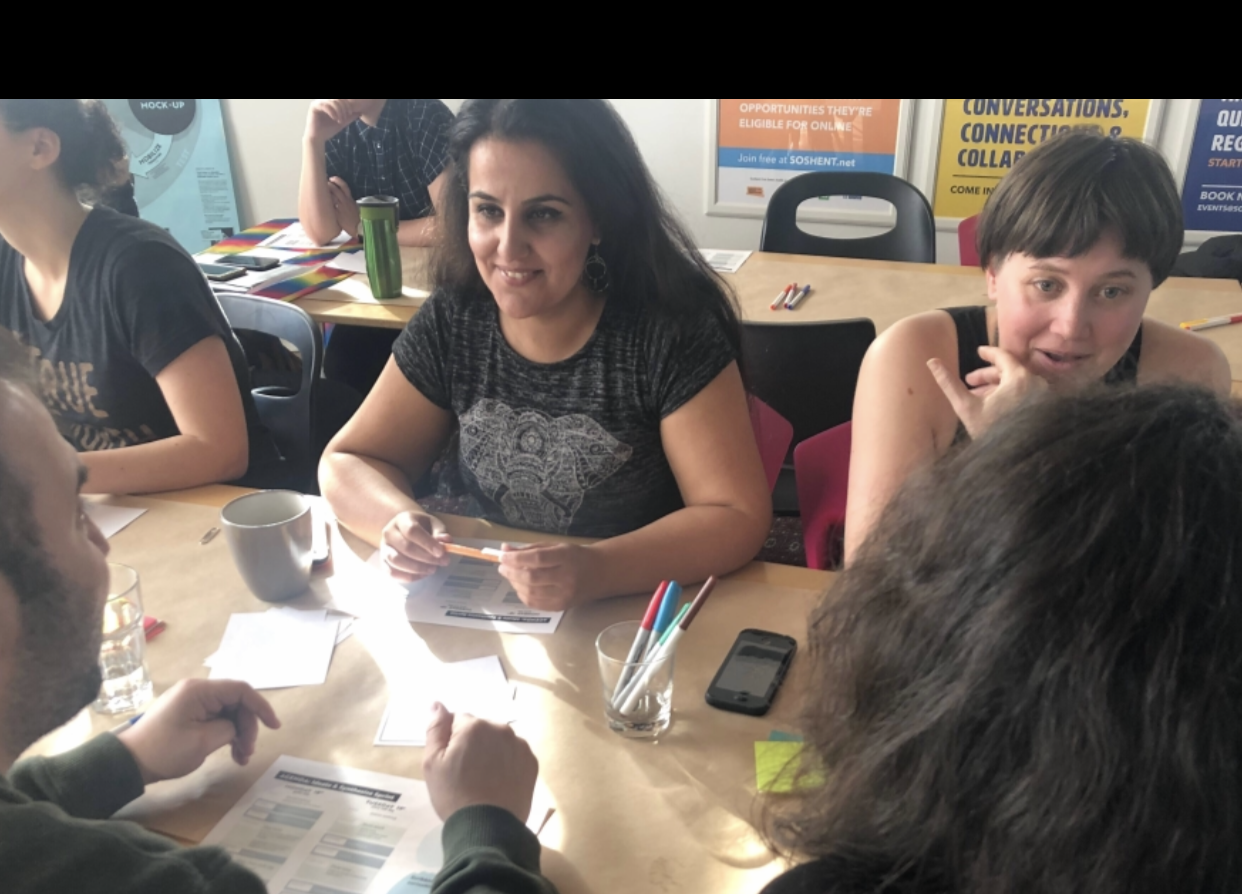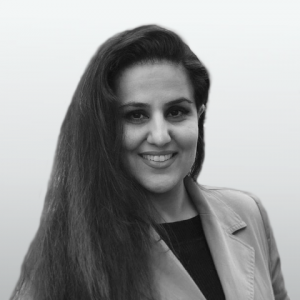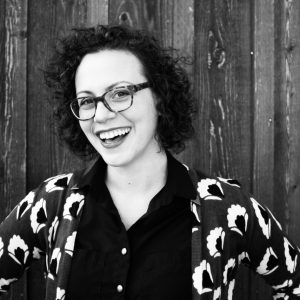Categories
Let’s go back to your first impressions with Grounded Space. What did you think about what you saw and the concepts you heard?
S: My first impression was like, “what does ground and space mean?” I was so curious to know the process, curious about how they do research, what steps led to the creation of Kudoz. I was trying to imagine the end of the project and how it would look like, trying to put pieces together.
M: Ambitious, unattainable, crazy…fierce.
I thought they were pioneers of concepts, like the concept of change. As a layman I didn’t consciously think about concepts of change behind services. I saw them and just accepted them, and didn’t question if there was a different way to try to change things.
Did you think there was a potential to come up with ideas that would address newcomer needs and change the status quo?
M: Yes. I thought so but mostly because Daniela planted those thoughts in my head. She was throwing ‘out of this world’ insane ideas at me all throughout our interviews. I thought she was crazy but she is a doctor so, ok.
S: I was skeptical. I was thinking, “you wouldn’t understand those people because you’re not from the same culture, you haven’t been through the things they went through”. For me, being from their culture and feeling what happened to them exactly, I was giving myself credit that I could come up with ideas that could address those peoples’ problems, but InWithForward couldn’t.
How do you feel about that now?
S: I feel really different, in a positive way. I was feeling the problem – InWithForward was “seeing” the problem – that’s the difference. People who see the problem can think of solutions. Sometimes people who are feeling the problem are too close, inside of it, and they can’t think outside the box. People who are on the outside can solve issues together with insiders if they have a deep understanding of those issues.
InWithForward’s process went deeper and deeper with the families, to listen to them more and more. We kept going back to the families, talking about their lives, spent days with them, and listened to their personal and professional life issues. It was a broader and deeper look at their lives compared to limitations with settlement services.
M: This process is way harder than just thinking and dreaming about new ideas because everything must be intentional, calculated, and must become something tangible.
Even if these goals and outcomes of a better life seem so hard and unattainable, sooner or later we will get somewhere because somebody (Inwithforward) is not just thinking about them, they are doing something to make things happen.
How did our most recent sprint shape your skepticism?
M: Personally I think the ideas are revolutionary because who cares about the emotional side of things? In my experience, immigrant service hotlines have told me, “I’m sorry I can’t tell you anything/can’t do anything at this time…you just have to wait”. Meanwhile, I was at the other end of the line, gripped with fear because of uncertainty… but who cared about what I felt?
So this idea that newcomers’ fear, the fear I had, needs to be addressed is mind boggling for me – unheard of! I think all the ideas need lots of tweaking, but Inwithforward is already turning the wheel for change so it’s a start. I feel like I’m witnessing the start of something good if not great. So cliché!…but this is what I feel.
S: In the first day of the sprint I wasn’t sure the ideas would be useful for people we talked to, or if they would like the ideas. But on the second and third day when we put our people into the idea storyboards, had more time to go deeper into the ideas (the same we did going deeper talking with families), role playing, I realized that our ideas could address emotions and be practical and useful for the families.
When we got deeper into the ideas I saw how many outcomes we are reaching for in an idea – not just trying to address “help them find a job”, but trying to create a change in the environment that would enable people to gain exposure to new networks and practice skills. I was focused on basic survival outcomes, but I realized these ideas can address more than just basic survival outcomes.
What would you tell your past self on your first day with Grounded Space about what to expect?
S: Don’t judge quickly. Wait for the steps. Listen from all of your heart to what they are doing and saying. And don’t just focus on the survival mode mindset – people have other needs that must be addressed for a meaningful life.
M: Kudos for putting yourself out there! For sharing your story even though most times you are private about your life and the reasons you do things but I am hopeful your story will help other newcomers in the future☺


